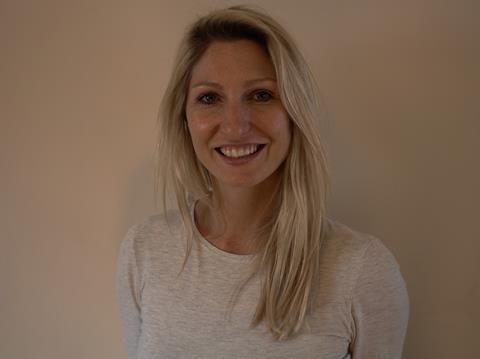Turning on-screen stories into off-screen outcomes is a process that’s gaining momentum, writes ImpactWild founder Cherique Pohl

Television has long set out to use storytelling to raise awareness and educate, and is often at its most powerful when it does - think Mr Bates vs The Post Office.
But there is so much more that can be done to drive deliberate change across the entire content ecosystem and that’s where impact production comes in.
Impact production has been quietly gaining momentum in the past few years, with programmes increasingly judged not just by ratings, but also by the real-world difference they make. However, the term ‘impact production’ is still widely misunderstood and often dismissed as charity, confused with marketing, or treated as an afterthought.
In a landscape where audiences demand purpose and advertisers seek trust, understanding and implementing impact production could prove a big competitive advantage.
Impact production is effective across all genres - Sky is piloting it on entertainment programming
Coined in 2012 by the non-profit Doc Society, the term refers to a deliberate strategy that targets specific audiences to drive social or environmental change, complementing or expanding the core themes of a programme and deployed just before or at launch.
It is not campaigning TV - which would breach Ofcom’s broadcasting code - but an editorial extension that brings a programme’s themes to audiences in new and sometimes unexpected ways.
And impact production is not the same as making powerful content, nor is it simply marketing it.
It’s about shaping what happens after (and sometimes alongside) a programme or film, using its themes to drive real-world change. In practice, this means bringing in a dedicated impact producer to work with the production team, turning on-screen stories into off-screen outcomes.
Their role is to move viewers from passive consumers to active participants through education projects, community engagement, advocacy, strategic media campaigns, partnerships, and curated events or screenings.
Just this month, Richard Curtis championed impact production at the British Screen Forum Conference and BAFTA launched Albert’s Impact Producer Accelerator Programme. I am currently working with ScreenSkills to host its first panel on this topic in January. So, the word is getting out.

However, it is Sky - a broadcaster - that has been first out of the gate, pushing the boundaries to fully embrace impact production across the business.
One of Sky’s first major impact projects is alongside Moon: Nature’s Secret Force, a landmark natural history series narrated by Tilda Swinton, premiering on Sky Nature on 30 November.
I worked as Impact Producer alongside the team at Humble Bee Films, and Sky agreed to back an on-the-ground initiative in Tanzania with Wild Survivors. Still underway, the project helps communities manage elephant conflict while supporting local women to build beehive enterprises - shifting perceptions and strengthening community-led conservation.
But it’s not just relevant in factual, which Richard Curtis also acknowledged.
Impact production is effective across all genres. Sky is currently piloting impact producers on entertainment programming, Netflix’s Sex Education sparked a sexual health advocacy campaign, and soaps such as EastEnders and Coronation Street have driven measurable shifts in attitudes and behaviours around everything from HIV and domestic abuse to mental health and disability, in partnership with relevant charities.
So much more can be done in this space with conscious impact-driven thinking during a programme’s lifecycle.
In today’s rapidly shifting industry - and, frankly, in the wider economic and sociopolitical climate - impact production is needed more than ever.
It brings together diverse skills, perspectives and cultural expertise to create lasting, repeatable positive change that addresses the issues shaping society and the future of our planet.
Impact must be proven not through overnight ratings or social buzz but through real shifts in awareness, behaviour, policy, and community outcomes
Our industry is uniquely positioned to make a meaningful difference and for those involved, the benefits of engagement are clear: reaching wider, more diverse audiences; unlocking funding from development to beyond delivery; and fostering a collaborative, long-term approach rather than one-off project sprints.
This approach clearly comes with considerations. First: who pays? Impact production can be relatively lean, but budgets still matter and broadcasters must decide which titles merit dedicated impact work.
There’s also the issue of copyright and IP. Broadcasters and programme partners need flexibility to use content beyond the programmes.
Crucially, impact must also be proven - not through overnight ratings or social buzz, but through real shifts in awareness, behaviour, policy, and community outcomes. This is also where Impact Producers play a role in ensuring funders, broadcasters, and audiences can see and share those results.
These considerations are steadily being addressed, and there’s a clear appetite to define how this role can fully function in TV. impact production is no longer just a good idea - it’s becoming part of the industry’s future blueprint.
Cherique Pohl is an impact producer and founder of ImpactWild, leading workshops and consulting for companies such as BBC Studios and Sky. Moon: Nature’s Secret Force debuts on Sky Nature in the UK from 30 November.








No comments yet